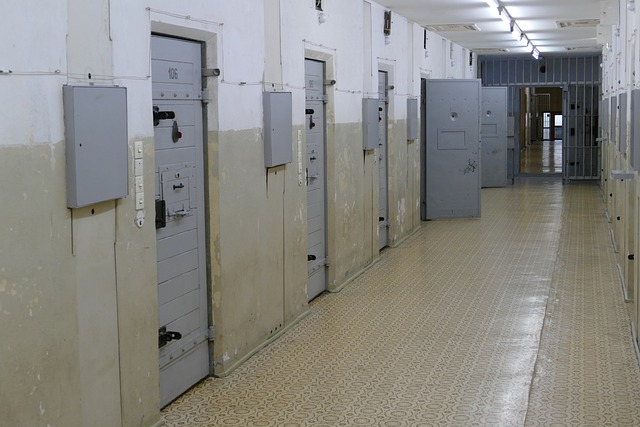First-time offenders, often young or without prior records, face challenges like fines, community service, and counseling after impulsive decisions. Programs offering second chances, including restorative justice and diversionary initiatives, help them learn from mistakes while avoiding long-term negative impacts on education and employment. Blood Alcohol Level (BAL) testing is a critical component of the justice system, providing scientific evidence in drunk driving cases and aiding in informed decision-making. Comprehensive second chance programs that prioritize rehabilitation, community support, and BAL testing offer a path to redemption for first-time DUI/DWI offenders, fostering personal responsibility and deterring future offenses.
In many jurisdictions, first-time offenders face stringent penalties, often hindering their future prospects. This article explores the concept of second chances for these individuals, focusing on understanding the unique challenges they encounter and the critical role of blood alcohol level (BAL) testing within the justice system. We delve into successful rehabilitation and community support programs, highlighting inspiring success stories that demonstrate the transformative power of providing a fresh start to those who’ve made a mistake.
- Understanding First-Time Offenders and Their Challenges
- The Role of Blood Alcohol Level Testing in the Justice System
- Second Chances: Rehabilitation and Community Support Programs
- Success Stories: Overcoming Barriers to Provide a Fresh Start
Understanding First-Time Offenders and Their Challenges

First-time offenders, often young individuals or those with no prior criminal record, face unique challenges when navigating their first encounter with the legal system. This demographic may have made a mistake, such as driving under the influence, and now find themselves in a unfamiliar and intimidating environment. One of the key aspects to understanding this group is recognizing that their decisions were often impulsive or driven by peer pressure, rather than deliberate criminal intent.
Additionally, first-time offenders might struggle with the consequences of their actions, including fines, community service, or requirements for counseling and education. For many, this is a wake-up call, prompting them to take responsibility for their behavior. Programs that offer second chances, such as diversionary programs or restorative justice initiatives, can play a significant role in helping these individuals learn from their mistakes while avoiding long-term negative impacts on their lives, including potential barriers to education and employment opportunities. This is where random Blood Alcohol Level Testing might also be implemented as part of such diversionary programs to deter future offenses.
The Role of Blood Alcohol Level Testing in the Justice System

In the justice system, Blood Alcohol Level (BAL) testing plays a pivotal role in determining culpability and sentencing for first-time offenders charged with drunk driving or alcohol-related offenses. This scientific procedure measures the amount of alcohol present in an individual’s blood at the time of their arrest, providing crucial evidence to support or refute allegations. Accurate BAL results can significantly impact the outcome of a case, potentially leading to reduced charges or sentences for eligible first-time offenders who may be seeking a second chance.
The implementation of standardized and reliable BAL testing methods ensures fairness and consistency across different jurisdictions. This technology helps judges and prosecutors make informed decisions, considering both the severity of the offense and the defendant’s potential for rehabilitation. By utilizing these scientific findings, the justice system can offer a more nuanced approach to handling first-time offenders, striking a balance between accountability and second chances.
Second Chances: Rehabilitation and Community Support Programs

Many first-time offenders, especially those facing DUI/DWI charges, can benefit from second chance programs that focus on rehabilitation and community support. These programs often include mandatory education sessions on the effects of alcohol and substance abuse, as well as counseling to help individuals address underlying issues contributing to their behavior. By participating in these initiatives, first-time offenders can demonstrate accountability and commitment to change, which can lead to reduced sentences or even dismissal of charges.
Rehabilitation goes beyond individual therapy; it involves connecting offenders with community resources like support groups, job training programs, and housing assistance. These networks provide a safety net and encourage long-term positive behavior changes. Additionally, some states have implemented innovative strategies such as Blood Alcohol Level (BAL) testing as part of these second chance programs. BAL testing offers real-time feedback on alcohol consumption, promoting personal responsibility and deterring repeat offenses by demonstrating the immediate consequences of impaired driving.
Success Stories: Overcoming Barriers to Provide a Fresh Start

Many first-time offenders find themselves facing significant barriers when trying to turn their lives around after a mistake. However, success stories abound of individuals who have overcome these hurdles and secured a fresh start. One notable obstacle is the impact of a criminal record, which can make it challenging to secure employment or housing. But with perseverance and support, many have found ways to rebuild their lives despite this hurdle.
For instance, consider the case of someone who was charged with a DUI offense due to high blood alcohol levels. Instead of letting this define their future, they actively sought counseling, completed community service, and enrolled in a defensive driving course to demonstrate personal growth and responsibility. This proactive approach not only helped them achieve a clean record but also allowed them to share their story as an advocate for change, inspiring others facing similar challenges to take control and turn their lives around through positive action.
In conclusion, addressing first-time offender cases involves a multifaceted approach. By understanding their unique challenges and implementing evidence-based solutions like blood alcohol level testing, we can enhance justice while offering meaningful second chances. Rehabilitation programs and community support play pivotal roles in helping these individuals turn their lives around. Success stories highlight the transformative power of such initiatives, demonstrating that providing a fresh start can lead to positive outcomes for both offenders and society at large.






